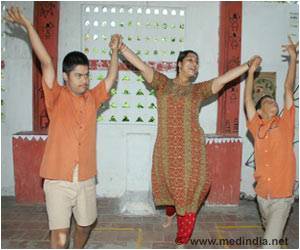One-third of Americans are losing sleep over the state of the U.S. economy and other personal financial concerns.
One-third of Americans are losing sleep over the state of the U.S. economy and other personal financial concerns, according to a new poll released today by the National Sleep Foundation (NSF). The poll suggests that inadequate sleep is associated with unhealthy lifestyles and negatively impacts health and safety.
NSF's Sleep in AmericaTM poll reveals striking disparities in the sleep patterns, health habits and quality of life between healthy and unhealthy Americans. Those in good health are two-times more likely than those in poor health to work efficiently, exercise or eat healthy because they are getting enough sleep.The number of people reporting sleep problems has increased 13% since 2001. In the past eight years, the number of Americans who sleep less than six hours a night jumped from 13% to 20%, and those who reported sleeping eight hours or more dropped from 38% to 28%.
"It's easy to understand why so many people are concerned over the economy and jobs, but sacrificing sleep is the wrong solution," says David Cloud, CEO of the National Sleep Foundation. "Sleep is essential for productivity and alertness and is a vital sign for one's overall health."
About 40% of Americans agree that sleep is as important as diet and exercise to overall health and well-being; yet, only 32% of Americans who report sleep problems discuss them with their doctor.
"Getting enough sleep everyday is as important to your health as eating healthy and being physical active. Physicians should regularly ask all patients about sleep, diet, and physical activity habits," says Woodie Kessel, MD, MPH, Assistant Surgeon General, USPHS (ret.) who was a member of the 2009 Sleep in AmericaTM poll taskforce. "Sleep is as vital as eating right and exercising to our health."
Lack of sleep is creating a major public safety problem as well—drowsy driving. The 2009 poll finds that more than one-half of adults (54%) – potentially 110 million licensed drivers– have driven when drowsy at least once in the past year. Nearly one-third of drivers polled (28%) say that they have nodded off or fallen asleep while driving a vehicle.
Advertisement
"With the economy worsening, we are seeing patients in our clinic who have told as that they would not be returning for treatment because they or other family members have lost their jobs, and they are concerned about costs," says Meir Kryger, MD, Director of Research and Education at Gaylord Sleep Services. "Some patients have elected not to be treated for sleep apnea because they could not afford the co-pay for the equipment. These patients may wind up far sicker. Sleep disorders are often associated with other chronic diseases, like diabetes and hypertension, and they can add complexity and even accelerate each other if untreated."
Advertisement
Source-Eurekalert
SRM









